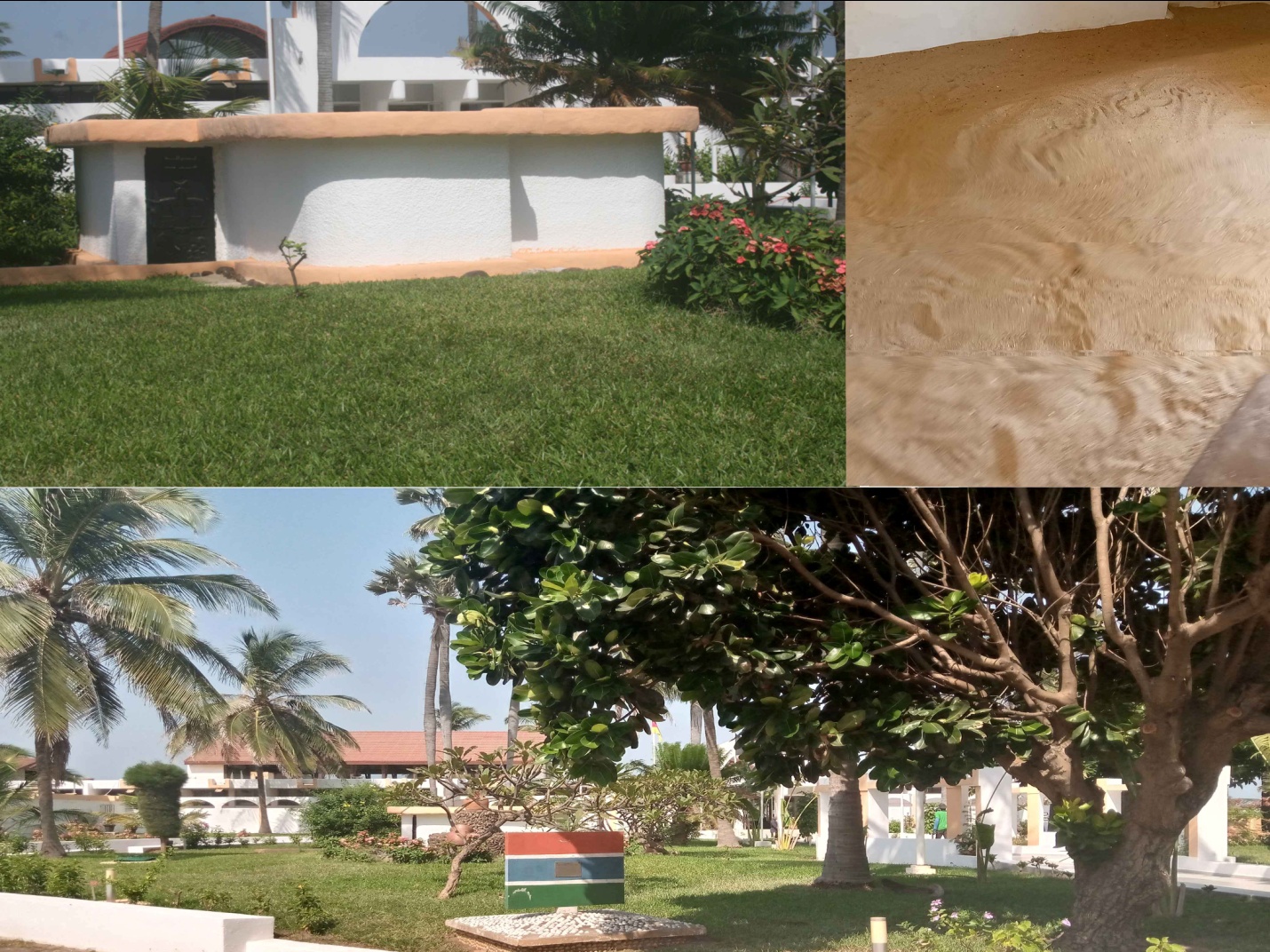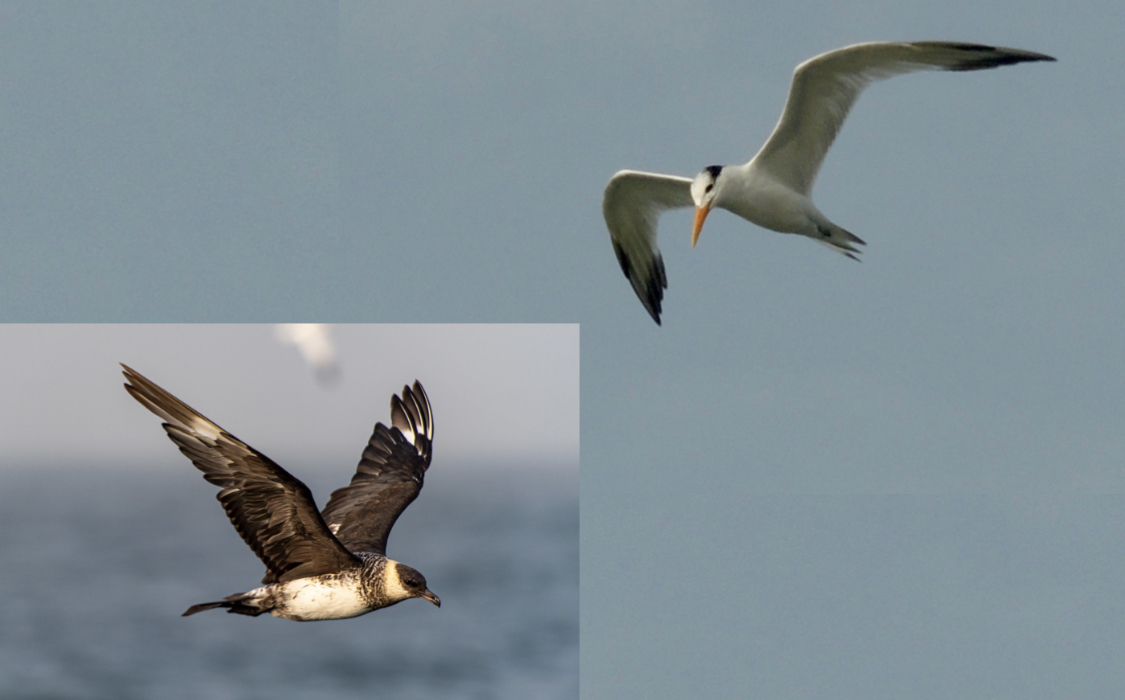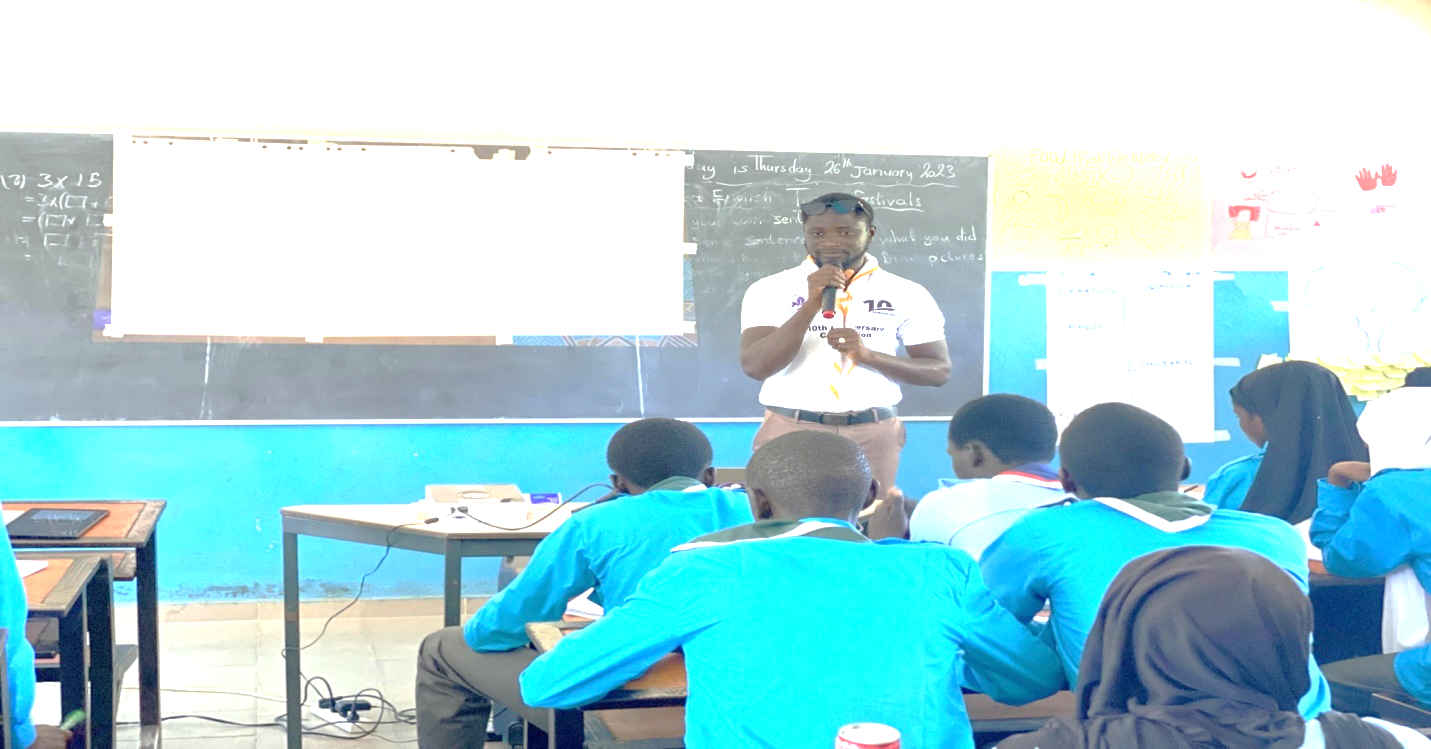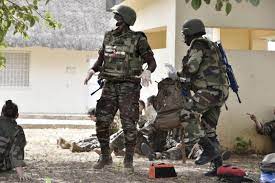By Yunus S Saliu
One of the most visited Senegambia jihadist tombs in The Gambia is the Imam Sait Matty Bah Tomb in Bakau. It is built at the former Sunswing Hotel now Sun Beach Hotel in Cape Point, Bakau.
The tomb built over century ago is about six meters walk from the gate of the hotel to the tomb, from the gate you will directly see the tomb painted in white colour with a light brown strap at the top and bottom side of the tomb with a walking lane to the only carved wooden door painted black. The door is always close not lock but open for any visitor to enter inside.
Inside the tomb is a bumpy sand of less than two meters length indicating the point where the body is laid, there is praying mat and Al Qur’an, a bunch of short broom and a pot to burn incense while inside, too, is painted all white.
Meanwhile, in the front view of the tomb, a plaque and trees there were given in honour of Imam Sait Matty Bah by Mustafa Bittaye, the general contractor for the then Sunswing Hotel.
Sait Matty Bah tomb receives more visitors than any other jihadist tombs in The Gambia most of the tourists or visitors that check into the hotel do find time to have a glance while some take pictures of this beautiful and well kept tomb.
The Tomb is not just for visit or photography alone but some people come around or visit there to make some supplications because Sait Matty is not just only an Imam, Jihadist of his time but also a marabou.
However, Imam Sait Matty Bah was son of Almami Maba Jahu Bah who was one of the great Jihadists, a King and Imam in Sine Saloum.
Historians recorded that he came to settle in The Gambia around begin of the 20th century and was a devout and staunch follower of Islam with lots of followers, mainly Wollofs which majority of them migrated with him to The Gambia. He was the father of former Imam Alhaji Waka Bah the father of one of the former Imam of Bathurst – Alhaji Ahmad Lamin Bah.
According to Hassoum Ceesay, historian and Director General of National Centre for Arts and Culture (NCAC), Imam Sait Matty the son of Almami Maba who was one of the Muslim great Jihadists and reformers of the Senegambia region credited for spreading of Islam in large part of Senegambia. This included the region today called Sine, Saloum and Badibou. “He did this until the French knew if they really wanted to complete their colonial designed project of colonizing they have to deal with him in one way or another,” he stated.
In 1867, he continued in his narration, the French attacked Maba Jahu Bah and he lost his life in the Battle of Somb now in the present day at the Republic of Senegal and before his death he has already planted the seed of Islam in large part of the Senegal and The Gambia.
More importantly, Maba Jahu Bah had a son who was also a warrior “when Maba Jahu was killed, the son, Mamoud Nderry Bah took up the mantle to continue from where the father had stopped. And he did this for over 20 years but another son of Maba Jahu, Sait Matty born in 1855 was interested in reforming and converting some people particularly in the Badibou. Saity Matty’s interest gave way to confrontation with his brother, Mamoud Nderry.”
History informed that Mamoud Nderry and Sait Matty were two brothers with rivalry between them and the British also played important part in dividing them, they were giving Sait Matty arms and gun powder which used against his brother “hence they did not want unity among them. The fear of the British was that if the two are united they will conquer Bathurst, a British colony.”
The British plan worked, Sait Matty become a very strong opponent of Mamoud Nderry and fought several in present Badibou and some of the Sait Matty’s warriors were forced to kill across the river such at the South Bank of the River Gambia.
“Finally, in 1893 he lost a battle and fled with his ‘talibe’ (disciples), some of his warriors were disarmed by the British and allowed to settle in Bathurst but because Bathurst was too tight for him and his entourage but was taken care of by the Alkalo of Bakau where he had house and home to settle down in Bakau Kunku where he lived until his time in 1897 and was buried in Bakau,” he explained.
However, a street was named after Sait Matty in Bakau and his descendants can be found in Senegal and The Gambia proud of his legacy as Islamist, Reformer and a Diplomat who was able to balance his self-interest to get arms and weapons from the British and able to fight his wars and also maintained a good relationship with the British to live independent life.
Till today all his descendants have their annual Gamo, family reunion both in The Gambia and Senegal and work together translating the family reunion to something stronger.





